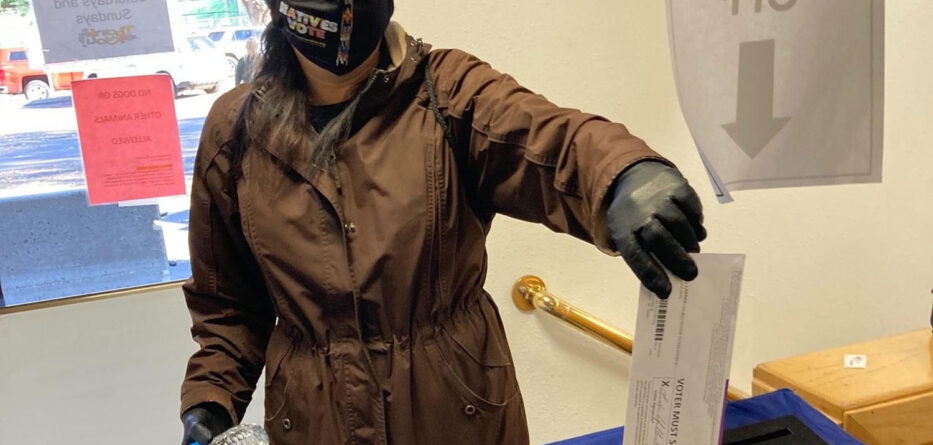The road to voting rights for Native Americans has been long, but advocates for indigenous people hope to build on the momentum they’ve seen in recent years to get more people to the polls.
Native Americans were not granted U.S. citizenship until 1924.
Keaton Sunchild, political director for the group Western Native Voice in Montana, said even as citizens, and with Constitutional amendments ensuring everyone’s right to vote, Native Americans struggled to cast their ballots. They faced Jim Crow-style barriers similar to those aimed at Black Americans, such as poll taxes and literacy tests, until the Voting Rights Act of 1965. He said even after the civil-rights legislation, there are still obstacles.
“It was a slow process,” Sunchild observed. “There were hurdles along the way and even now there’s still barriers and whatnot. Maybe they’re not as overt as they were in the beginning, but there’s certainly still some challenges to getting folks to the ballot box.”
Sunchild pointed out recent legislation in Montana will make voting more difficult for Native Americans. For instance, Native Americans used same-day voter registration more than other groups, but it was curtailed by lawmakers in the 2021 session. They also utilize ballot collecting because voting sites often are far from home and mail service can be unpredictable, but it was limited by lawmakers last year.
He emphasized the recent drawing of Montana’s congressional districts also will limit Native Americans’ influence on elections.
However, Sunchild noted voter turnout is on the rise, with 63% voting in 2018 and 66% in 2020. His organization is stressing the importance of the 2022 election, which is not a presidential election year but will contain candidates with influence over the state.
“They’re making the decisions that impact us on a local level,” Sunchild stated. “And so, midterms often allow us to have a full slate of candidates where we’re voting on nothing but candidates that are going to actually make a difference.”
Indigenous people still are dealing with racist narratives as well. Sunchild said even state lawmakers have questioned why tribal members have the right to vote, and it can make it uncomfortable to speak up about voting rights.
However, the Native American voting bloc has changed recent elections. Sunchild said his group leans on the fact it took a long time for Native Americans to gain the right to vote when they are encouraging people to the polls.
“It’s going to take consistent participation from everybody that’s already registered,” Sunchild urged. “And it’s going to take new people coming into the equation, but if we can do that, then ultimately we can make a difference, and we will make a difference. But we need all of us, and it’s going to be a team effort.”






